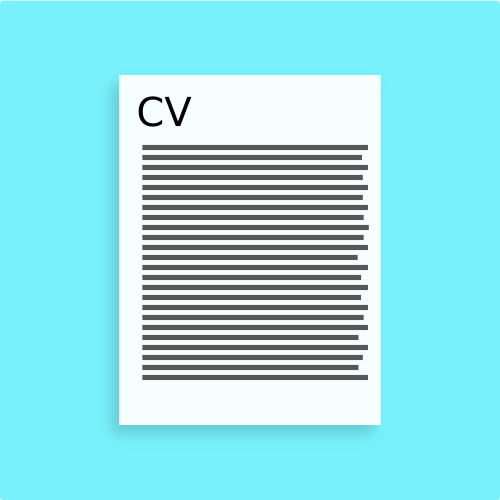
Drafting your CV
Writing a compelling CV is like doing pottery. You are the raw clay material, and you have to fashion it to suit the employer. Here are some tips:
Try and show why you are unique:
You can look at a CV as a way of advertising yourself to a potential employer. Its primary objective is to get you that vital interview. It’s a summary whereby you market your skills and abilities and match them to the role. However, recruiters are often incredibly busy and skim through piles of CVs.
A well-presented, clearly structured CV stands out and has a much greater chance of being read. Make yourself desirable to executives.The most common problem with CVs at the graduate level is that they are too lengthy and don’t offer demarcating factors that separates you from the rest of the pool
Think about the HR staff member who is scan-reading your CV in the pile of hundreds, just like it. What are the key things that person needs to know about you that differentiate you as someone who is worth meeting? Give serious thought to your selling points – in marketing terms, your unique brand— and put this out in an accessible way. Making the CV reader’s life easier considerably increases your chances of being shortlisted.
Moreover, try and include examples from your work experience/internships, your extra-curricular activities that display achievement (however small), edge, leadership potential, communication skills and the ability to work in a team.
Tailor the message:
Employers don’t just want to see academics; they also want someone who will fit in with their team and be effective. That’s where your profile comes in, forming the introduction to your CV. Research the company that you’re applying to and customise it for them.
A typical CV statement that adds little or no value would read: “I am a confident, enthusiastic and hard-working person. I am responsible, a team player, and strong in communication, I take pleasure in working as part of a healthy group. I am highly motivated, original in my thinking, and hungry for growth.”
As you can see, it’s a lot of talk, but no walk. How are these qualities justified”?
A better one would be: “I aspire to work as an entrepreneur and solve real-world problems, providing people with jobs and sharing my innovative expertise. Having worked under many entrepreneurs, I have garnered skills in critical thinking, adaptability, and business prowess, setting me a deck apart. With my eminencies in creativity, perseverance and networking, I believe I am an ideal fit for your firm, sharing a mutual drive for excellence.
Highlight success:
As a graduate, your biggest asset could be your academic or sporting achievement, or it could be how you sorted out customer problems in a part time job – so highlight your success. However, don’t go overboard in listing lots of modules and breaking down all of your grades or team fixtures. Instead, stress the main achievements. Have you done well in a course module or a sports activity? Don’t forget to mention it. Commended for your dedication? Tell us more. Get the idea? If you did well on some coursework, say that ‘I analysed and interpreted information from various sources including the internet and library.’ Also, be smart about presenting your experience from working in a supermarket to a backpacking holiday.
Focus on value and not tasks:
These are pivotal to any graduate CV. If you have worked in a minimum wage/entry level job, connect the skills you cultivated to the job you’re currently applying for.
If they want team players and you have worked as part of a team of bartenders, then let them know about it. Focus on the what value you’ve delivered – why does a particular experience matter? With this in mind, as you write your CV, it’s essential that you focus on proving that you’re the written achievements can translate into real-life.
This means writing a compelling story about the value you’ve delivered, not just the tasks you’ve done. Let’s look at two contrasting examples.
- ‘Retail Associate at H&M’
- Awarded distinction of the top saleswoman, surpassing minimum daily individuals’ commerce by 300% through additional effort into building customer-employee relationships.
Another example –
“As music officer, I was responsible for arranging the four professional bands who played at the student ball”.
It’s what you achieve with an experience that makes the difference. Can you draw unique skill sets? Can you take away a lesson from every situation you chance upon?
It’s the quality of your learning that sets you apart from the other fishes in the pool, not the quantity.
Tell the truth:
Don’t lie. Be accurate. Employers can check in an infinite number of ways. Remember that a CV makes up the core of your interview and it’s easy to reveal dishonesties when under pressure. You don’t need to be a national hero or have rescued thousands of orphans from human trafficking. It’s the small things that matter, and the way you communicate your achievements makes all the difference. Corporations want genuine candidates with an enthusiastic demeanour, displaying a passion for success
Spellcheck:
Check, check and check again. Spelling or grammar mistakes equates to an instant ‘no’ in most cases.
Leave a Reply